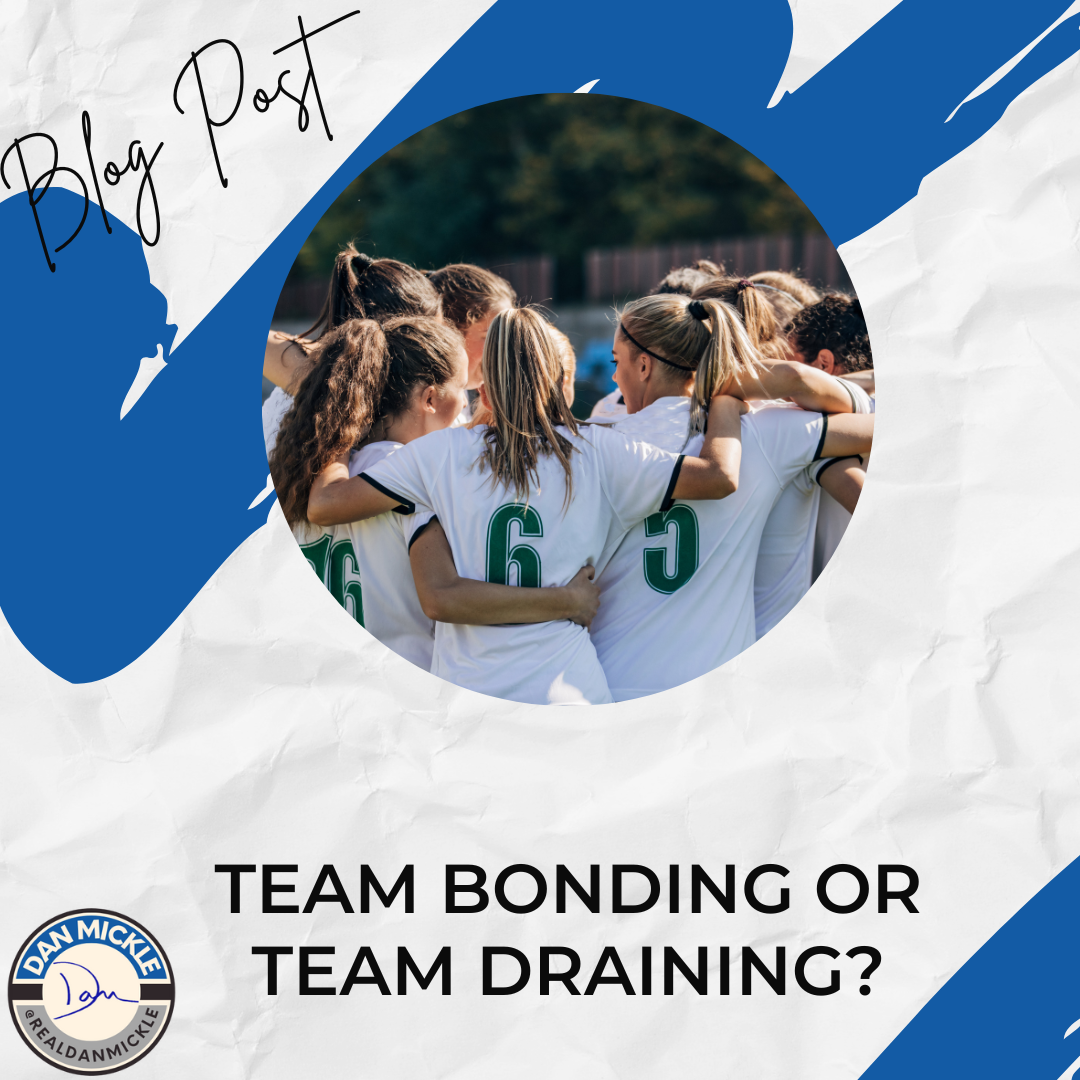It was tournament weekend number 347 (or at least it felt that way), and someone near the hotel breakfast bar, sipping mediocre tea from a paper cup, asked the question I’d heard a hundred times before: “Hey, Coach, any ideas for a team bonding activity tonight?”
The coach gave a polite nod. Maybe even smiled. But I caught the subtle pause. The kind of pause that screams, “Please, no.”
Now don’t get me wrong. I love the idea of team bonding. I really do. It’s sweet. Earnest. Everything that youth sports is supposed to be. But you know what else youth sports is supposed to be? Mentally and physically demanding. And maybe, just maybe, the 14-year-old who just played back-to-back matches and has to be up again at 6 AM doesn’t want to braid friendship bracelets or go bowling in matching tie-dye shirts.
Sometimes, the best bonding is the kind you don’t script.
We Need to Stop Forcing It
There is a difference between fostering connection and forcing it. When we shoehorn in an extra team dinner, a scavenger hunt at the mall, or an hour of “trust-building games” after a six-match day, we risk missing the point entirely. Kids are already bonding. They’re sharing rooms, trading snacks, consoling each other after tough losses, and huddling around outlets like it’s the last source of electricity in a zombie apocalypse.
You want bonding? Watch what happens when someone forgets their water bottle and three teammates MacGyver a solution out of hotel plasticware. That’s team building. That’s connection.
The myth is that connection requires an itinerary. It doesn’t. It requires space, shared struggle, and a few inside jokes about the kid who somehow always forgets their left shoe. If this resonates, you might also enjoy The Engagement Equation, where I dive deeper into team personalities and how natural connection can thrive without being forced..
Let Them Recharge
Here’s the thing no one talks about: athletes are human beings. Revolutionary, I know. They need downtime. Some of them are introverts who need to be alone to reset. Some are neurodivergent and already running on low battery from the sensory overload of whistles, shouting, and performance pressure. Even the extroverted energizers need a moment to breathe.
When we fill every available moment with “team time,” we unintentionally send the message that individual needs come second. And isn’t that a little ironic, considering we want to build a stronger team?
The best teams I’ve coached didn’t bond because of a team dinner. They bonded because they respected each other. They felt seen, heard, and supported—not just in the huddle but in the hallway, in silence, and in space.
Team Bonding Happens in the Breaks
You want to see real bonding? Watch a team quietly decompress in a hotel hallway, sprawled in hoodies, sharing TikToks and Pringles. Or listen to the late-night whispers between roommates who just battled through three sets and are now navigating the awkward chaos of puberty and pillow talk.
No scheduled activity can beat that.
We have to start trusting the process. The sport is the bonding agent. The shared bus rides, the stink of the jersey bag, the heartbreak of a blown lead, the collective cheer after a comeback—those are the bricks of team culture. Everything else is just Pinterest fluff.
Parents, You Mean Well (and We Appreciate You)
This isn’t about blaming parents. In fact, it’s usually coming from a place of love. You want your kids to connect, to enjoy the moment, to make memories. That’s beautiful. But we need to remember that just because a weekend is open doesn’t mean it needs to be filled.
If you want to support your athlete in the most meaningful way, it’s not always about organizing. It’s about observing. Watching for when they need a hug versus when they need headphones. Knowing when to rally the group and when to hand over the room key and say, “Go rest. I’ve got the snack duty.”
Team Bonding Takeaways (Because You Know I Love a Good Wrap-Up)
- Team bonding doesn’t have to be orchestrated. It just needs time and space.
- The game is already doing the hard work. Let it.
- Recovery and rest are part of high performance. Respect it.
- Parents, you’re doing great. Just don’t over-schedule us into emotional extinction.
Until next time, let’s keep building stronger athletes, one unscripted moment at a time.


